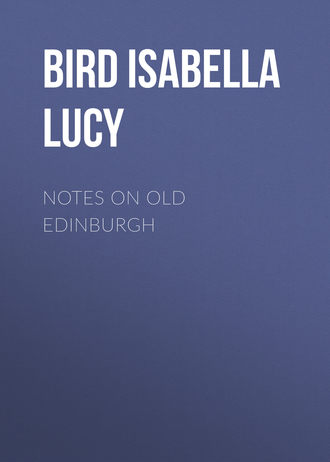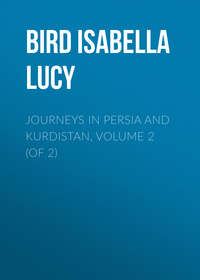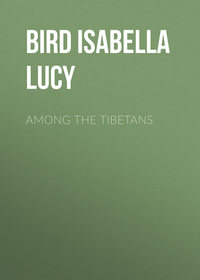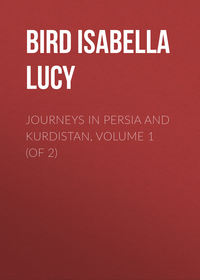 полная версия
полная версияNotes on Old Edinburgh
The next room, though miserable in itself, was clean and well furnished, with pictures hanging upon the partitions. A mother and daughter, both widows, but earning a good living by needlework, were the occupants. They complained bitterly of the gross viciousness of the stair, and of the “awful riot” kept up all night by those newcomers. They told us that the wretched old hag who had come from Dundee had five female lodgers, with only two gowns among them all, and that they were of the poorest and most degraded class. These respectable widows, both elderly women, had lived in that room for seven years, and in the main had had quiet neighbours. They now found themselves in this close proximity to a den of vice, unable to exclude the sounds which came through the thin partition, and too terrified at night by the drinking and uproar to be able to sleep. The term was lately passed, so they were compelled to bear it.
A few sentences more will take us through the remaining rooms on the two floors we are investigating. There follow a widow, who binds shoes, with two children, sleeping in a large bed in a room 11 feet by 9 feet, with a small window, letting in air too impure to breathe; rent, £2, 12s. A widow, with a brother seventy-two years old, poor, but clean, chiefly dependent on a daughter in service. A mason’s labourer, who once farmed six acres of land, now earns 12s. per week; wife with bad eyes, and health too delicate for work, having fretted herself into decline for two children who had died of the cholera; room, 12 feet by 8 feet, rented at 1s. 2d. per week. Three adults and six children in a room 12 feet by 10 feet, without direct light. Drunken labourer, earning 15s. per week – two sons in prison; two daughters living with him, with three illegitimate children; room, 14 feet by 15 feet; rent, £3, 18s. a year. Pauper widow, with one child and two unregistered lodgers. Married labourer, with two children, earning 15s. per week; three lodgers (prostitutes) in the same room, 14 feet by 12 feet; rent, £3, 18s.; borrowed light; no furniture; all drunken together. Then follow five families, all wretched; and we have completed our room-to-room visitation of two floors in an average land in an average close in the High Street.
As seen thus, in broad daylight, except for the filth, dilapidation, vermin, darkness, and poverty, combined with the suggestions of immoral conduct on the part of most of the people, there was nothing peculiarly startling to any one at all acquainted with the Old Town of Edinburgh. I have taken this particular close, for the especial reason that what is said of it and its inhabitants applies to dwellings and circumstances in which possibly 40,000 people pass their days. I have given the impression made by it upon a stranger, in preference to depicting entries in a part of the town with which I am well acquainted, and which, in many of their aspects, are far worse. There are cellar-dwellings, damp and dark, old byres with open drains still running through them, let for human beings; garrets, damp and draughty, in which a man can scarcely stand upright; and cabins, of which stairs, roofs, and walls are mainly of wood. There are rooms as small as any I have mentioned, occupied by one, two, and three families, only reached by passage-rooms as small and crowded as themselves; and in these dens the whole round of human life goes on – agonies of birth and death, miseries of sickness and sorrow, marriage jollifications, funeral revels, the cold remains of mortality lying on the same straw with the living; the miserable meal on the table, the unshrouded corpse on the floor. Are such woes as these, such absolute savage degradation, the inevitable deposit of the highest Christian civilisation? Is there, indeed, no balm in Gilead – is there no physician there? Is it the curse of God’s indignation, or the curse of man’s selfishness, avarice, and neglect, under which those thousands are lying? Is this the “good ground” on which the gospel seed is to spring up and bear fruit one hundredfold? Are the rich and godly to send missionaries and Bible-women among these masses, and save their own souls by giving the necessary funds? Shall they not rather go down themselves among the lost, as Christ went, and learn their needs, and find from themselves that foremost among these are decent dwellings in which it might be possible to live and die otherwise than as swine. We might then hear less of money lying at two per cent. in the banks, or lost in insolvent railroads, and more of 8, 10, and 12 per cent. as a certain return. Talk of the risk of house property! Is it greater than the risks people have contentedly run for years in railroads, mines, and cotton? Possibly every £100 spent on improving the dwellings of the poor might do something towards accumulating a treasure in the heavens that faileth not, where no thief approacheth, or moth corrupteth.
The walls of the Old Town houses are generally strong. Such a “land” as that which I have described, gutted from cellar to roof, and supplied with water, gas, and a temporary receptacle for rubbish, would make a good substantial house at a comparatively small cost, with a certain return of from 8 to 10 per cent. The removal of the subdividing partitions, new floors, doors, and windows would be a necessity. The good result of such an undertaking in every close and wynd would not be only the placing of sixteen or eighteen families in a position in which, if they were so minded, they could be moral and religious, but the insertion of a wedge into this hardened stratum of viciousness and poverty. The bad could not be so bad in close proximity to the virtuous. The filthy would aspire to be something better. The landlords, the hardest class of all to deal with, would be compelled, by competition and opinion, to amend their property and their ways. Decent houses in St. Bernard’s or St. Leonard’s have no more influence over the manners and morals of Hume’s Close or Todrick’s Wynd than decent houses in Moray Place or Chester Street; but decent lands put down in Cant’s Close or Skinner’s Close, with rooms rented from £2, 10s. to £4, would do a better work of reformation around them than all the agencies which are at work.
It is only necessary to refer to the complete renovation of Warden’s Close, Grassmarket, by Dr. Foulis, as a proof of what is to be done by energetic individual action. The restored fabric, as arranged for human beings, pays 14 per cent. Of course, the still greater overcrowding of other dens during the renovation of even one “land” requires to be carefully provided against.
It has been frequently stated that a third of the inhabitants of Edinburgh are not in connexion with any Christian Church. In the thirty-two families visited in – Close, two women were the only persons who professed to attend any place of worship. In another small close which we visited none but a Catholic family professed to attend any church. Eight years ago, in two populous stairs in another part of the town with which I was well acquainted, there was a total of nine persons attending church out of an adult population of forty. At the present time this number is reduced to one woman, who, “when she goes anywhere, goes to Lady Yester’s.” Of the thirty-two families before spoken of, most of the women and some of the men had formerly been church-goers. Where is this “lapsing” to end?
CHAPTER IV
I have given the aspect of the houses and population of a particular district by daylight, avoiding all sensational details. The “night side” of the same is well known from description – the High Street filled with a densely compacted, loitering, brawling, buying, selling, singing, cursing, quarrelsome crowd – every fifth man and woman the worse for drink so early as ten at night – a nocturnal market vigorously proceeds under difficulties – men and women puff their wares with stentorian tones and coarse wit – barrows with flaring lights, from which the poorest of the poor are buying the unwholesome refuse of the shops, stale fish, and stale vegetables – boys vending laces, nuts, whistles – women hawking tin and crockery ware, all eager, pushing, poor. Add to these, the exhibitors of penny-shows and penny cheats, the singers of low and improper songs, the vendors of popular melodies and penny narrations of crime, and an idea may be formed of the noisy traffic of the High Street. As the night goes on, the crowd becomes more drunk and criminal until the legal hour of closing the spirit-shops, when hundreds of pallid, ragged wretches are vomited forth upon the street to carry terrors into their dark, crowded homes. The majority are half-mad, and almost wholly desperate. Men and women, savage with drink, are biting, scratching, mauling each other; the air is laden with blasphemies, brutal shouts from the strong; cries from the weak; blows are dealt aimlessly; infants at midnight cry in the wet street for mothers drunk in the gutters or police cells; young girls and boys are locked out for the night by parents frantic with drink, viragos storm, policemen here and there drag an offender out of the crowd amidst the chaffing and coarse laughter of young girls bearing the outward marks of a life of degradation; mothers with infants in their arms lie helpless in the gutters, to be trundled off to the final ignominy of the police cell, wretches scarcely clothed, whom the daylight knows not, slink stealthily to some foul cellar lair, – and all this, and worse than this, from the Tron down the Canongate, and along the Cowgate, and in the Grassmarket, and in numbers of the lanes and alleys, broad and narrow, which border upon them. The district we visited by day we visited also by night, to find that at 11 P.M. the whole population of the lands previously described was astir, mostly from evil, partly from the impossibility of quiet; that small children were still out among the influences of the closes and the street, and that there was no sign that the night had come, except the darkness and the increased overcrowding of many of the rooms. The dark, narrow passages were in several places almost impassable, owing to the dead-drunk men who lay across them; the rooms were thronged and stifling, and sick and well, drunk and sober, vicious and virtuous, were all huddled together with only a pretence of separation. Whole families were sitting in the dark, or cowering round fires which only rendered the darkness visible. “A horror of great darkness” rested on all the houses. The noise was hideous. Decent people might well be afraid of going to bed. Half the inmates were under the influence of drink. Drunkards tumbled up the long dark stairs, and reeled down the dark passages, with shouts and imprecations, destitute even of the instinct which teaches a wild beast the way to its own den. Sounds of brawling, fighting, and revelry came from many of the rooms. Here a drunkard was kicking through the panels of a neighbour’s door; there two dead-drunk women lay on a heap of straw; here a half-tipsy virago protested to us, with the air of a tragedy queen, that she “took in none but respectable lodgers;” there a man mad with drink tore his wife’s throat with his nails. One room presented a scene of disgusting revelry and vice. In the next a feeble woman was stilling the moans of a dying child. “And that day was the preparation.” It was the Edinburgh Saturday night, and over the din and discord of city sins, and over the wail of city sorrows, came the sweet sound of St. Giles’s bells announcing that the Sabbath had begun.
Of that Saturday night in Edinburgh the Rev. R. Maguire, rector of Clerkenwell, who was one of our party, writes, in the Church of England Temperance Magazine– “We can but say that all we saw that night has left upon our mind the painful feeling, that of all the dark and desolate places of the earth the Old Town is about the darkest and the most desolate.” He adds, in the same paper, after a description of some of the dwellings in Hume’s Close – “We can scarcely feel surprised to know that the condition of these thousands is far past all hope.”
Clerkenwell itself, Whitechapel, and Lambeth can furnish enough of misery and crime, but it is not believed that any city in Europe contains an area of wretchedness so large and unbroken as Edinburgh. In other cities the miserable dwellings and their inhabitants hide themselves out of sight in obscure purlieus, scarcely known to the rich by name, much less by observation. Here the very core of all is the High Street of the city, with a royal palace at one end and a royal castle at the other, and studded down the whole of its picturesque length with public buildings. Here are the Courts of Law, the Parliament House, the City Chambers, the Assembly Halls of the Established and Free Churches, the Cathedral, numerous places of worship, some of which at least are, or were, fashionable, newspaper offices, printing establishments, and one of the most frequented shops in the city, the wholesale and retail establishment of Duncan M’Laren and Son. Thus, instead of being hidden away, the wretchedness and vice of the High Street and Canongate obtrude themselves on all passers-by, from the representative of royalty who in semi-regal state passes up and down the whole extent of this Via Dolorosa, several times annually, to the summer swarm of tourists from all parts of the world, who return to their own cities rejoicing that they are not as the metropolis of Scotland. But it is not from such casual visitors that the amelioration of the condition of the poor is to be expected – not on them that the responsibility rests. It is on the gentlemen who cross the High Street daily to lounge in the Parliament House, on the literati who frequent one of the finest libraries in Britain, on the antiquarians who explore the wynds and closes in search of an ancient inscription or a remnant of a cornice, on the hundreds, both of ladies and gentlemen, whose avocations continually carry them to the various public offices in the High Street, on all who see and all who hear. Can it be that the feelings of all these are blunted by familiarity with sights which shock a stranger; or that the upper classes in Edinburgh are steeped in an unwholesome indifferentism; or that the Christianity of the city is waxing feeble and old? Without admitting one or all of these defects, it is difficult to account for the extreme complacency with which the majority of the upper classes are acting out the creed, “Forget the painful, suppress the disagreeable, banish the ugly;” content to add luxury to luxury, and to throw away money on ill-considered alms, while the poor are perishing from neglect. It is difficult to comprehend such intense apathy, after all that has been written by the daily press, private individuals, and lastly by the “Society for Improving the Condition of the Poor,” to show the thinly-crusted abyss over which people are disporting themselves. It might have been supposed that when facts similar to those stated in these Notes have been reiterated from various quarters, so that no adult in Edinburgh can plead ignorance concerning the state of the poor, that the appeal for visitors made by the Society aforesaid would have met a tremendous and immediate response, and that the gentlemen of Edinburgh would have come forward, as those of other and busier cities have done, to offer willing aid. If there be another thing more mournful than the poverty and immorality of the poor, it is the vicious selfishness of the rich. It is observable in Edinburgh, as well as elsewhere, that the upper classes indulge very freely in the expression of opinion on the “dirt, vice, and improvidence of the poor,” but the lapsed masses of the Old Town have a “public opinion” also regarding the selfishness, heartlessness, and indifference of the rich, and express it without much reticence of phraseology. Indeed, it is doubtful whether there is a man or woman who looks across the green ravine which separates the Old Town from the New, who has not a very decided opinion, right or wrong, that the negative and positive delinquencies of the best-instructed class have a great deal to do with the lapsing of the masses in this city. Almost the first steps have yet to be taken towards removing this baneful hostility of class, and promoting a healthy feeling on each side.
In “house-to-house visitation” in Edinburgh, I have observed with much surprise that among 145 families visited 143 were Scotch. In almost the whole of these the influence of a decent upbringing, and the restraints which connexion with a church imposes, had been thrown away, and the people, utterly debased and pauperized, had not a rag of Scottish pride left. It appears from all that can be observed that the mere existence of these unbroken masses of poverty, overcrowding, and vice, has a tendency to denationalize the people, and to produce a population which shall be absolutely barren of those virtues which have been considered peculiarly Scotch – a population, in fact, knowing nothing of truthfulness, modesty, reverence for parents and old age, independence, Sabbath observance, and thrift. These masses, which are sinking lower and lower, in spite of existing agencies, have little to distinguish them from the “dangerous classes” of London, Paris, or New York, except that they are more drunken and dirty. Their mere existence, to say nothing of their increase, is sapping the foundations of “Scottish nationality.”
Another thing which impresses a stranger is a peculiar habit of speech common to nearly all these people, and is possibly nearly the only relic of their more religious days. “God-forgotten” was the phrase they nearly all used, an expression which gives occasion to the question, “Have Christians, who are the representatives of God upon earth, misrepresented Him to these people by their neglect?” A grudge against God, an idea as if He were the author of evil and not good to them, seemed general. Many of the phrases used showed a sort of reckless belief, which, under the circumstances, was worse than unbelief. Coming down a long dark stair late at night, from an overcrowded land, a frightful hag clutched my arm with her skinny hand, and hissed into my ear, “Is it God’s elect you are seeking here? It’s the devil’s elect you’ll find,” laughing fiendishly at her own wit. “So this is Blackfriars Wynd,” remarked one of our party, as we passed down the crowded alley. “No, it’s hell’s mouth,” exclaimed a forlorn woman, who was dragging a drunken man to his joyless home. “Do you think the missionary would dare to mock me by telling me of God’s love? Could he have the face to do it here?” a poor woman exclaimed, whose three fatherless children lay ill on some straw, which served for a bed in a cellar, of which it and a kettle were the only “furniture.”
It is one thing to hear unpleasant facts stated by unwelcome speakers, or to meet with them fossilized in statistical tables, but altogether another to confront them in beings clothed in kindred flesh and blood, in men, women, and children claiming a common Fatherhood, and asserting their right to be heard. These our brethren, haggard, hopeless, hardened, vicious, on whose faces sin has graved deeper lines than either sorrow or poverty; this old age which is not venerable, this infancy which is not loveable, these childish faces, or faces which should have been childish, peering from amidst elvish locks, and telling of a precocious familiarity with sin, – these glowering upon us from the tottering West Bow, with its patched and dirty windows, from the still picturesque Lawnmarket, from the many-storeyed houses of the High Street, – these are spectres not easily to be laid to rest, and “polite society,” which has become perfect in the polite art of indifference, must encounter them, sooner or later, in one way or another.
Surely it is possible to raise these our brethren, who are living and dying like brutes, to a platform on which the gospel of Him who came to preach glad tidings to the poor would not be met by nearly insuperable obstacles. Though more wretches have been pulled out of the mire by mission churches than by any other agency, the masses are “lapsed,” “gone under,” sunk on the whole to lower depths than the ministerial plummet can sound, and the ministers, most of whom are hampered by the existing necessities of large congregations, are not directly responsible for a condition of things which is a disgrace to Scottish Christianity. My own experience leads me to believe that these lapsed masses must be raised out of the “Slough of Despond” before they can hear or see; that these miserable thousands must have at least as much light, air, and space as we give our brutes, before a ministerial visit can be aught but a mockery, – before they can rise to manhood and womanhood in Christ. The ministers are not to be altogether blamed for failing to carry the tidings of peace to those who are too deaf, from drink and demoralization, to hear them. Condemn them if they fail to thunder into ears scarcely less dull, that the blood of those who are going down alive into the pit will be required of a church-membership which is bound to aim at no lesser measure of devotion than His who laid down His life for the brethren. Let them demand the lives of these godless ones from the respectable who enjoy the Sabbath luxury of sermons; let them declare a crusade against the Christlessness and apathy of those who sit at ease at communion-tables, content to leave those to the outer darkness for whom that same body and blood were broken and shed, and they will be guiltless.
It was by a life of sacrifice and a death of shame that the redemption of this world was wrought; and it is by a life of sacrifice alone – if loving search after the lost, if personal sympathy with the wretched, if stooping to raise and aid the poor are to be called sacrifice – that the Master’s steps can be followed and His work on the earth be completed.
I. L. B.
1
Report on the Condition of the Poorer Classes in Edinburgh, 1868, p. 19.
2
Report on the Condition of the Poorer Classes of Edinburgh, 1868, p. 49.




